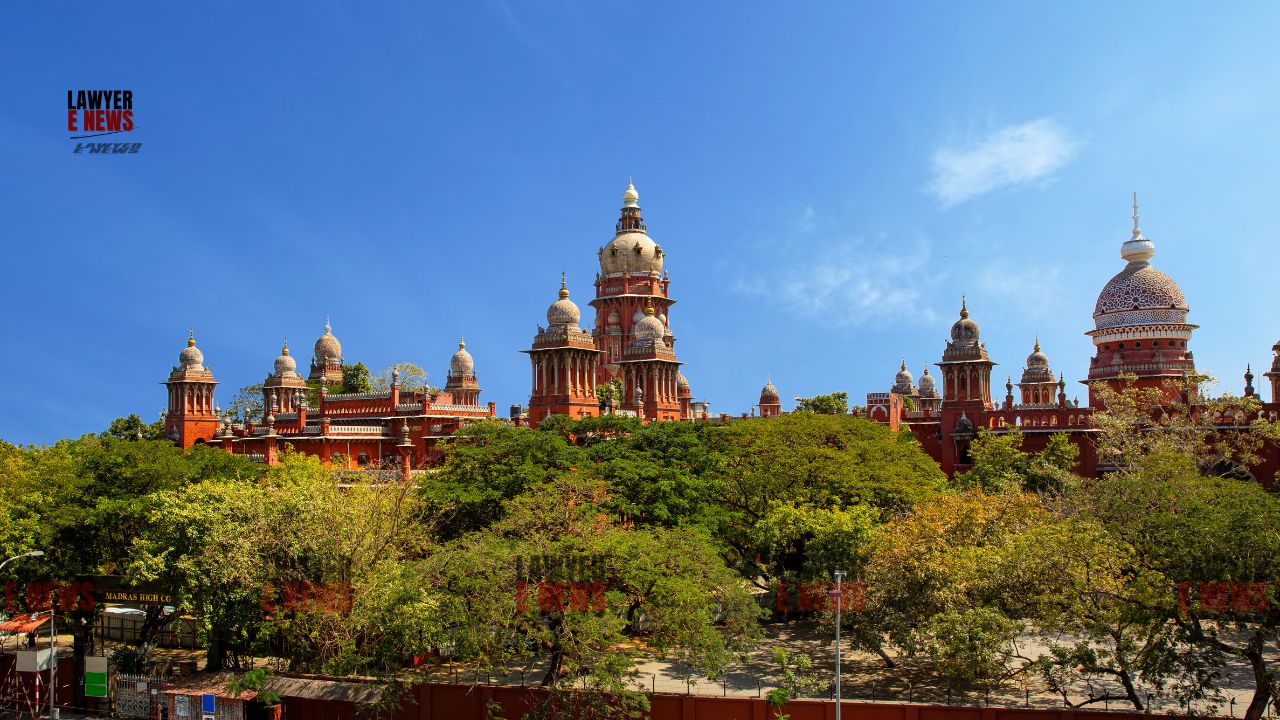-
by Admin
15 February 2026 2:16 AM



Madras High Court upheld the dismissal of a discharge petition in S. Srinivasan vs. The Assistant Director, Director of Enforcement, affirming the charges under the Prevention of Money Laundering Act (PMLA), 2002. The court ruled that there was a prima facie case for prosecution based on the petitioner’s involvement in laundering the proceeds of crime through a Trust associated with the All India Overseas Bank Employees Union.
The case arose from multiple FIRs filed by the Central Bureau of Investigation (CBI) in 2014 against L. Balasubramanian, a former trustee of the All India Overseas Bank Employees Union (AIOBEU), for corruption and amassing disproportionate assets. The Enforcement Directorate (ED) initiated an investigation under the PMLA based on these scheduled offences. The petitioner, S. Srinivasan, a co-trustee, was implicated for his alleged role in conspiring to siphon off union funds and using the AIOBEU Trust to launder the proceeds through real estate transactions and a marriage hall.
The petitioner challenged the application of PMLA provisions against him, arguing that he had no direct involvement in the transactions leading to the accumulation of illicit funds. He claimed that his role as a trustee was nominal, and he had not benefitted from the funds or property acquired by the Trust.
The petitioner further contended that the prosecution under the PMLA was flawed, as there was no specific evidence implicating him in the money laundering activities of the Trust. He sought discharge from the case on these grounds.
The court rejected the petitioner's arguments, emphasizing that under Section 3 of the PMLA, mere possession or enjoyment of proceeds of crime is sufficient to invoke charges of money laundering. The court noted:
"The offence as defined under Section 3 captures every process and activity in dealing with the proceeds of crime directly or indirectly, and is not limited to the final act of integrating tainted property into the formal economy."
The court referenced key findings from the investigation, including that the Trust, of which the petitioner was a trustee, had engaged in illegal activities, such as leasing Union property for commercial use without proper authorization, and generating substantial profits that were not used for the welfare of Union members.
In dismissing the petition, the court highlighted the petitioner’s role in entering into various agreements for the Trust and his failure to formally resign as a trustee. It ruled that there was sufficient prima facie evidence to proceed with the trial under the PMLA.
The High Court confirmed the rejection of S. Srinivasan’s discharge petition, holding that the allegations of money laundering, based on his involvement as a trustee of the AIOBEU Trust, merited further judicial scrutiny. The case will now proceed to trial under the PMLA.
Date of Decision: October 4, 2024
S. Srinivasan vs. The Assistant Director, Director of Enforcement.
